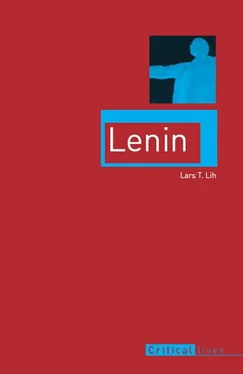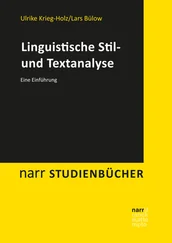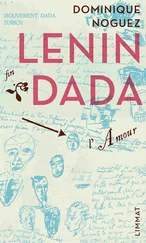In the chaotic days that followed, the new Bolshevik state began to emerge. Lenin desired and expected a coalition with the Left Socialist Revolutionaries as the representative of the peasants in ‘the revolutionary dictatorship of the workers and peasants’. Otherwise, he was dead set against anything that smelled of coalition or ‘conciliation’. Through much shuffling and hard-nosed negotiation at the top Lenin got his way, mainly because the masses shared his disgust with coalition.
Although the Bolsheviks were committed to holding elections for a Constituent Assembly, they accorded no legitimacy to anything but a vlast based directly on the soviets. When the Constituent Assembly met in Petrograd on 5 January 1918 it was met with the demand that it recognize the sovereign authority of the soviets (and therefore the Bolshevik government). When the assembly refused, it was forcibly disbanded. The spirit of ili-ili , of polarization and civil war, had triumphed.
On 12 March 1918 Lenin and Krupskaya again pulled up roots and boarded another train, this time accompanied by the entire Bolshevik government. For reasons of military security, Moscow was deemed a safer home for the new Soviet state than Petrograd. Lenin and Krupskaya were given rather spartan rooms in the Kremlin, adjoining the meeting rooms for the new government. This was the last move for Lenin. He never again left Moscow except to relax in nearby dachas (summer cottages).
Three train rides, three Lenins: in 1914 an obscure émigré seeking safe haven in wartime Europe, in 1917 a revolutionary politician emerging from the underground, in 1918 a grimly determined statesman travelling with the government of all the Russias.
The Bolshevik revolution in October 1917 had been a huge gamble, and even survival of the new ‘proletarian vlast ’ was doubtful for most of the year 1918. Yet by the end of that year and for the first half of 1919 Lenin claimed that ‘things have turned out just as we said they would’. For a brief period he was a truly happy man, convinced that his heroic scenario was rapidly coming true on a global scale.
Before arriving at this point, however, Lenin had to face what seemed like an endless succession of crises. In 3 March 1918 a humiliating peace treaty was signed with Germany at Brest-Litovsk. Lenin had to use all his influence to compel the reluctant Bolsheviks to sign. On 6 July the Left SRS staged their own uprising in protest against the foreign and domestic policies of their coalition partners. The crushing of the uprising by the Bolsheviks was accompanied by an end to meaningful electoral competition in local and central soviets. In the summer civil war and intervention intensified. On 30 August Lenin was shot and severely wounded by an SR terrorist. In response the Bolsheviks unleashed what they termed a Red Terror against the ‘class enemy’. 32
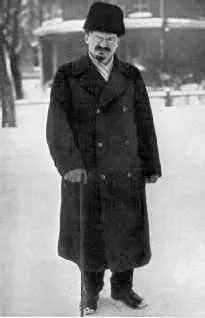
Lev Trotsky at Brest-Litovsk in 1918, where he led the delegation that negotiated the painful peace treaty with Germany.
Out of this kaleidoscope of crises we shall take one Lenin document and try to see it in its full historical context. This particular document was only released after the fall of the Soviet Union and has since become rather notorious – indeed, it is often used as a sort of shorthand for the essential meaning of Lenin’s career. It is a telegram sent on 11 August 1918 to Bolsheviks in Penza, a province about 700 kilometres southeast of Moscow in the Volga region. Lenin demands energetic repression of peasant revolts that he blamed on kulaks (rich peasants):
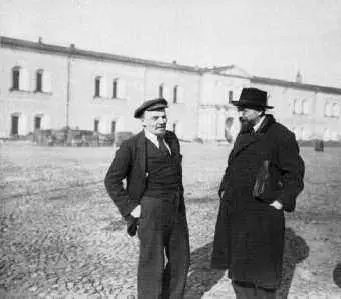
October 1918: Lenin shows the world he has recovered from his wounds by talking with his friend and secretary, Vladimir Bonch-Bruevich.
To Comrades Kuraev, Bosh, Minkin and other Penza communists:
Comrades! The uprising in five counties by the kulaks must lead to
merciless suppression. This is demanded by the interest of the whole revolution, for there is now everywhere ‘the last decisive battle’ with kulakdom. An example needs to be set.
1. Hang (it must be hanging, so that the narod sees ) no fewer than one hundred notorious kulaks, rich people, bloodsuckers.
2. Publish their names.
3. Extract all grain from them.
4. Designate hostages, in accordance with yesterday’s telegram.
Do this in such a way that for hundreds of miles around the narod sees, thrills, knows, cries out: they are strangling and will strangle the bloodsucker kulaks.
Telegraph receipt and implementation .
Yours, Lenin
PS: Find people who are tougher . 33
Why did Lenin insist that ‘the interest of the revolution as a whole’ demanded this grisly display of violence? His primary motivation was the food-supply crisis, that is, the need to feed people living in the cities, soldiers in the army and even those peasants who lived in the grain-deficit areas of Russia. From the outbreak of war in 1914 food-supply difficulties had been the motor that drove the unrelenting economic breakdown. Lack of exchange items, transportation problems and local embargoes had led to severe food shortages, and these in turn led to further economic, social and political dislocation. The Bolshevik’s two predecessor governments – the tsarist and Provisional Government – had both moved steadily toward compulsory delivery of surpluses as a solution to the crisis. Surpluses ( izlishki ) were defined as all grain above a certain amount that was reserved for the peasant’s own consumption and sowing.
All three regimes of the period – tsarist, Provisional Government and Bolshevik – strove to use material incentives to obtain grain, but all three were willing to use force to ensure delivery by grain producers. The tsarist and Provisional Government each collapsed, in large part due to their ineffective food-supply policies, and their collapse only further intensified the direness of Russia’s situation. The Bolsheviks had to come up with an effective response or they too would join their predecessors in the dustbin of history.
The sharpness of the crisis was intensified in summer 1918 by the consequences of the Brest-Litovsk treaty and the incipient civil war. Crucial grain-surplus regions – Ukraine, Volga, Siberia, North Caucasus – were cut off by German occupation and hostilities in the Volga region. Under these circumstances any grain-surplus region that remained under Bolshevik control became crucial, and so the Bolsheviks pinned their survival hopes on provinces like Penza. In August 1918 Lenin dashed off many telegrams on food-supply policy that show him desperately trying to get grain by any means. Providing bonuses for prompt delivery was the central strategy: ‘Give out bonuses to counties and villages in the form of equipment, money for schools and hospitals and, in general, predominantly for such aims.’ Lenin urged helping with the harvest, plus extensive agitation efforts to explain why the grain was needed. He hoped to get grain from former landowner estates that were now state farms run by poor peasants. He also demanded the taking of hostages ‘from among the rich’ and other applications of force to ensure compulsory deliveries. To cite only Lenin’s telegrams that mandate the use of bonuses as material incentives would of course be seriously misleading. To cite only his telegrams demanding the use of force is equally misleading. 34
Читать дальше
